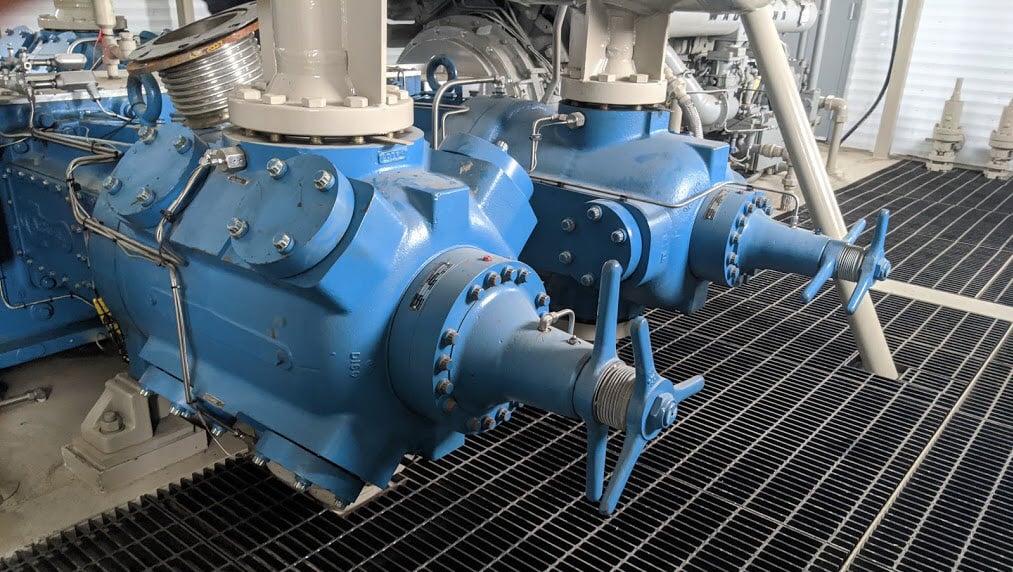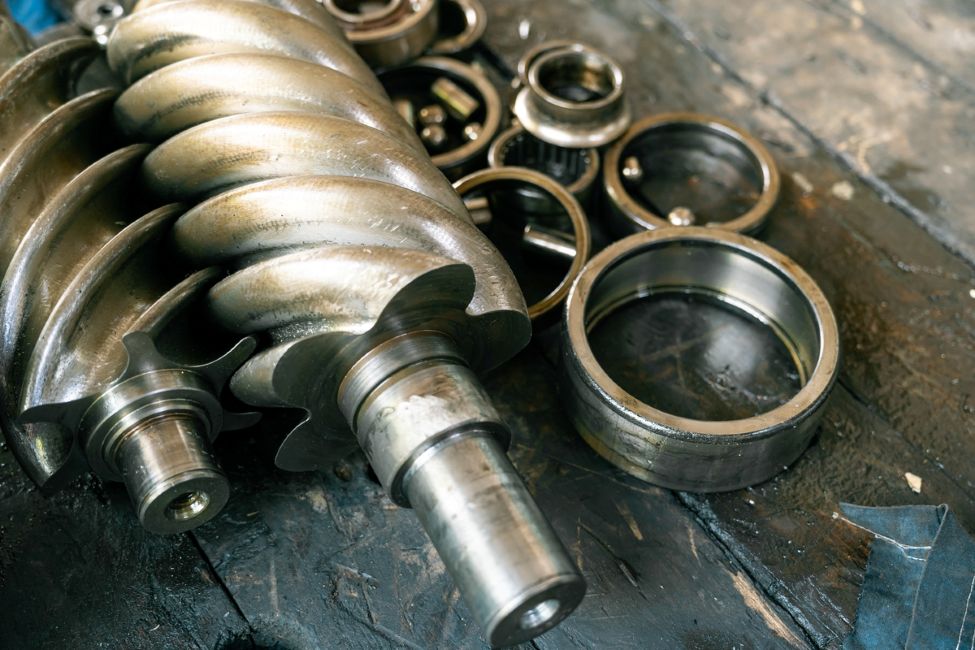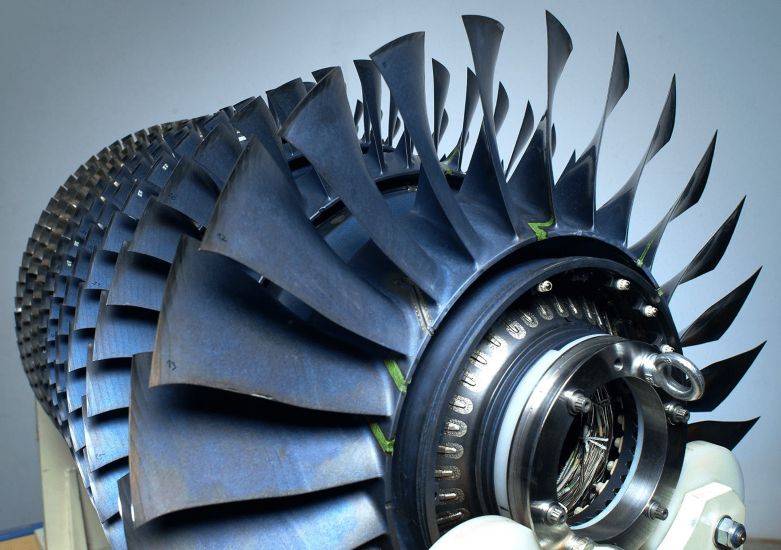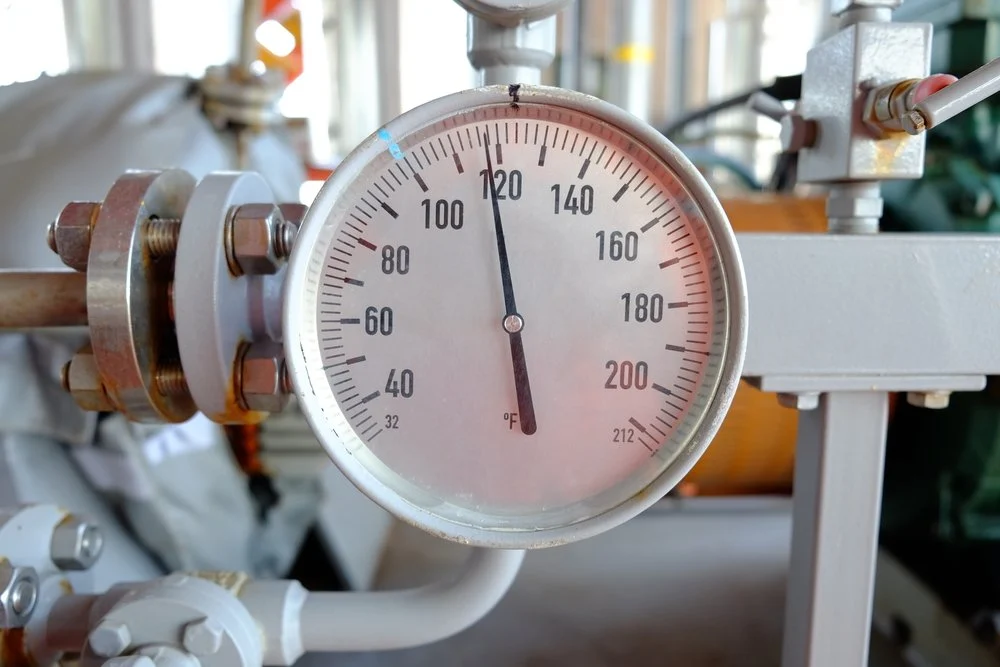The Most Common Failures of Reciprocating Compressors
- Home
- The Most Common Failures of Reciprocating Compressors

Reciprocating compressors are among the most essential machines in many industries, including refrigeration, air conditioning, and industrial processes. These compressors are commonly used for compressing gases and fluids due to their precise performance and power. However, like any other mechanical equipment, reciprocating compressors can face issues and malfunctions that reduce their efficiency and functionality. In this article, we’ll explore the most common failures in reciprocating compressors and how to fix them. Stay with Kamsan Iran until the end.
Common Causes of Reciprocating Compressor Failures
Before diving into the solutions, let’s look at the common reasons behind compressor failures:
Lack of Oil or Low-Quality Oil
One of the main causes of failure in reciprocating compressors is a lack of oil or the use of low-quality oil. Oil is essential for lubricating internal parts and preventing friction. Without adequate lubrication, the internal components wear out quickly, leading to breakdowns.
Incorrect or Overtightened Hose Connections
Reciprocating compressors often use hoses to transport fluids in and out of the machine. Improper installation or excessive tightening can cause leaks or abnormal pressure in the system.
Overload or Excessive Pressure
High pressure can put extreme stress on internal components, causing them to fail. This usually happens when the compressor is operated beyond its rated capacity.
Wear and Tear of Internal Parts
Extended use without proper maintenance can wear out parts like pistons, valves, and cylinders, leading to reduced performance and eventual breakdown.
Gas or Fluid Leaks
Leaks may occur due to faulty gaskets or cracked internal parts. Besides reducing efficiency, such leaks can pose environmental and health risks.
Solutions to Reciprocating Compressor Failures
If your compressor encounters any of these problems, you can try the following solutions:
Check and Replace Compressor Oil
Start by inspecting the oil level and quality. Ensure the oil is clean, sufficient, and suitable for your compressor. Dirty or insufficient oil should be replaced with high-quality oil to reduce friction and extend the compressor’s lifespan.
Inspect Hoses and Connections
If there are leaks or other hose-related issues, check all connections to ensure they are correctly installed—not too tight or too loose. Damaged hoses should be replaced immediately.
Adjust Compressor Pressure
The compressor must always operate within its recommended pressure range. If pressure is too high, adjust the settings to prevent damage to internal components.
Maintain and Replace Internal Components
Wear on pistons, valves, and cylinders is common in reciprocating compressors. Regular inspections and timely replacements will improve performance and prevent major breakdowns.
Detect and Repair Leaks
In case of a leak, identify the exact source, which could be from a damaged gasket, cracked component, or improper connection. Replace the damaged parts and perform a system test to ensure the leak has been resolved.
Train Staff and Use Proper Equipment
Incorrect usage is another leading cause of compressor damage. Proper training and the use of compatible equipment can significantly reduce unintentional wear and failure.
Preventing Reciprocating Compressor Failures
The best way to minimize breakdowns is preventive maintenance. This includes:
- Regular servicing
- Using high-quality oil
- Timely replacement of worn parts
- Monitoring pressure and temperature
These practices extend compressor life and cut down on unexpected repair costs.
Buy Compressors from Kamsan Iran
Reciprocating compressor failures can cause serious disruptions in various industries. By recognizing warning signs early and taking preventive measures, you can avoid costly damages. Regular maintenance, quality lubrication, proper pressure settings, and timely repairs all contribute to better compressor performance and reliability.
Remember: Preventive maintenance is always cheaper than emergency repairs. Take good care of your compressor to ensure its long-term performance.
**Share this article**
Comments






